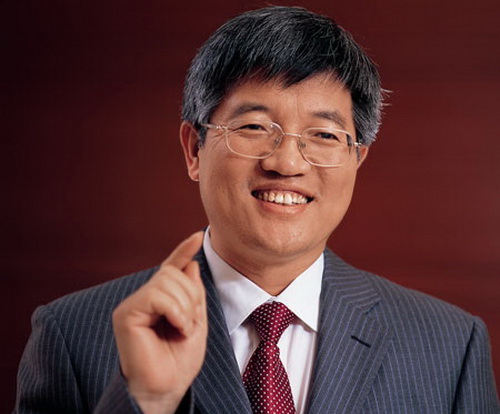

Highlights from the EO print edition, No. 506, February 14, 2011

Policy Makers on 2011
News Section
~ Every year the Economic Observer puts together a special feature consisting of short, snappy briefs of how the various ministers in charge of China's central government departments view their main tasks for the year.
~ Divided by central government ministries, we look at the key phrases and core focus of the departments over the course of the year
Original article: [Chinese]

A National Survey of Happiness
Nation, page 9-15
~ This week's nation section attempts to answer the elusive question of how happy Chinese people are by featuring a series of profiles of different individuals and families across the country.
~ Personal stories include those of single women who are finding it hard to find a partner who measures up to their standards and urban residents who have seen their wealth rise with the implementation of reform and opening up policies.
~ The feature also looks at what governments are trying to do in terms of trying to shift measures of the administrative success away from simple economic measures to those that account for happiness.
Original article: [Chinese]

A Retrospective on Financial Reforms
Market, page 17-24
~ This week's market section looks at how the various sections of China's financial sector have developed over the past 20 years or so.
~ Tracking everything from how Chinese bank their money to the increasing sophistication of the country's stock markets, the feature provides a perspective on how far China has come in terms of financial reforms.
Original article: [Chinese]

CEOs View of 2011
Corporation, page 27
~ A total of 46 CEOs, managers or Chairmen from a range of Chinese and multinational companies were invited by the EO to contribute a short article on how they view the future for their company in 2011.
~ Contributors included the heads of large Chinese companies like Fosun, Yingli and Mengniu along with those who represent international brands like Starbucks, Siemens, Caterpillar and Dupont in China.
Original article: [Chinese]

Egypt's Rabbits and Tigers
Observer, page 33
~ While fireworks exploded on the streets of China, the sound of gunfire echoed around the Egyptian capital as those working for the government fired on demonstrators.
~ The Egyptian revolt is the result of long term oppression of political rights.Dictatorships lack a pressure valve, they also lack the means to adjust themselves in response to circumstances. Because of this, social turmoil is inevitable, a product of a system in which one dictatorial leader is in charge.
~ Dictatorships rely on violence and lies, the biggest enemy of dictatorships is the free flow of truthful information.
~ In order to avoid social chaos, there needs to be a transition to a democratic system.But democracy cannot be built in a day.A democratic system is a complicated and needs to be carefully designed and implemented.
~ The Tunisian and Egyptian revolutions are also the first round of a revolution in the Islamic world, there goals are democracy and peace rather than dictatorship and violence.
~ The Egyptian revolution is also similar to the political upheaval that shook Eastern Europe in 1989 and which did away with the scepter of nuclear war and gave birth to peace.
~ Though the future of Tunisia and Egypt is still unclear, encouraged by their example, more countries will start to head down the path to democracy.
Original article: [Chinese]

Interview with Zhang Weiying: This Country's Attitude to Economic Reform is Changing
Business Review, page 41
~ The EO sits down with Zhang Weiying, the former dean of the Guanghua School of Management at Peking University, before he was removed from his position at the end of last year for holding "radical views."
~ Zhang talks about how support for economic reforms appears to have stalled. The climate within academic and policy circles seems to have changed and although many still claim to stick to the path of reform, they do not push ahead with reforms.
~ He also notes that where as the media and the weight of popular opinion always seemed to be behind reform, now it seems as if ordinary people are starting to lose their faith in the need or benefits of reform.
~ He recalls how in the past there was a slogan that we shouldn't make mistakes because we fear reform - that it was ok to make mistakes while reforming but it wasn't ok not to reform. Now, its slowly changed so that it's become ok not to pursue reforms, but not ok to make mistakes.
Original article: [Chinese]

